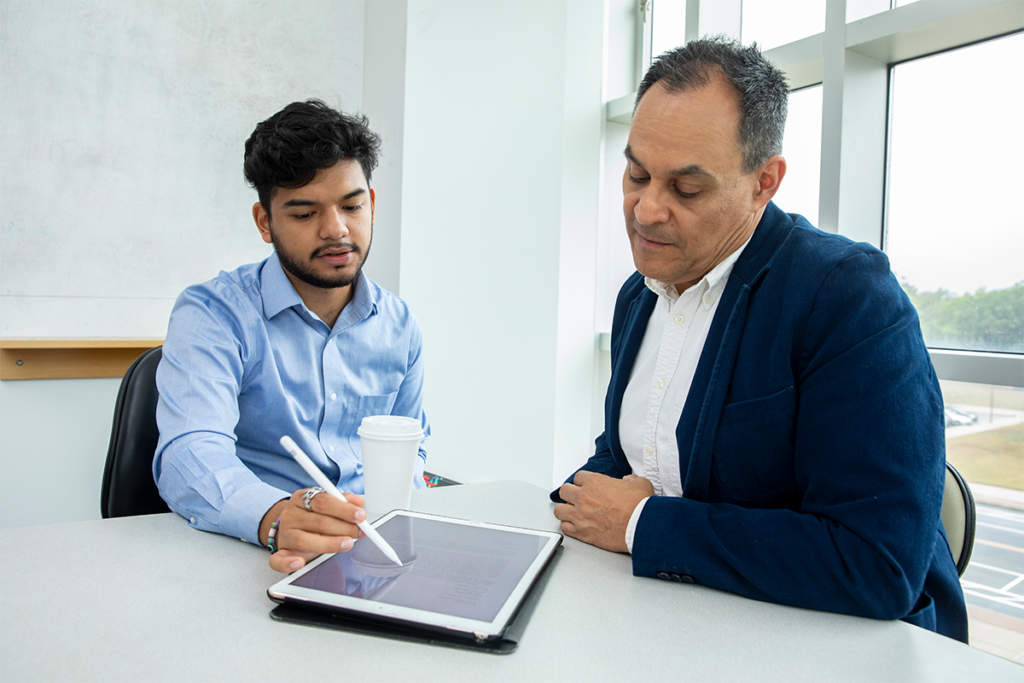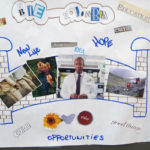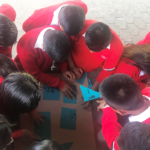Three years ago, I wrote a post about how college and career readiness programs can make a difference for students. In 2018, we had just completed a study of the Bridge to Employment (BTE) program examining how it influenced participants’ education and career decisions after graduation. Since then, my co-authors and I narrowed down our initial study to focus on its qualitative findings for our new paper in Career Development Quarterly. In this post, I’ll focus on one specific finding – the power of relationships in college and career preparation – and share additional detail beyond what was included in the paper.
Background
Funded by Johnson and Johnson since 1992, BTE is a college and career readiness program run by FHI 360’s National Institute for Work and Learning. The BTE program works with students in disadvantaged communities across the globe to increase their awareness and understanding of health careers and educational opportunities beyond high school/secondary school. Students participate in the program from grades 10 through 12.
Methodology
Our qualitative study was made up of 23 semi-structured phone interviews to gather international perspectives on the BTE program. Participants came from nine countries and graduated from high school between 2006 and 2016. We designed our questions to gather detailed information about how and in what ways the BTE program influenced participants’ subsequent decisions and outcomes regarding education and careers. Our primary research questions were:
- How has the BTE college and career readiness program influenced students’ educational goals and career attainment?
- What components of the BTE college and career readiness program do alumni describe as most beneficial?
Our team analyzed the interview data through a reflexive thematic analysis, using a deductive approach and used NVivo software. We first coded to a pre-existing framework based on the interview questions and then conducted a second cycle of coding to examine the data for common themes and experiences as well as notable distinctive comments. We selected quotations to highlight themes and describe unique ideas, and also coded emerging sub-themes and new themes. We reviewed all codes and themes through peer debriefing, then grouped and recorded commonalities within each theme, and then refined our codes.
Findings
Here, I’ll highlight the ways in which we find that program relationships support first-generation students, provide personal connections, link to professional opportunities and lead to lifelong friendships.
Supporting first-generation students
Relationships that encourage and support youth may be especially key for the population the BTE program typically serves – youth in low-income communities, many of whom are the first in their families to attend college. These youth may not have someone in their family circle or network who can answer questions or offer advice, suggestions or support. Alumni described how the BTE volunteers served as “role models” and provided key information. Respondents’ comments included:
“[My mentor] was like an angel to me…I’m a first-generation college student and my parents have no idea how to get into college, how to apply, how to do my FAFSA, anything. [My mentor] was always someone that I could go to for questions and to help me review my essays, my personal statement, and how to apply and everything.”
“I really had no idea what I wanted to do. But then [my mentor], she was saying, “Oh, I did this in college,” and I started to be really interested and then really focused on biology and stuff in school…and here I am.”
Providing personal connections
In addition to talking about how BTE volunteers provided guidance and critical information to them, participants repeatedly mentioned the “personal connection” with volunteers and “having someone to turn to” or “always shoot an email or text to.” One alumnus said a BTE volunteer was “someone in my life to talk to about my dreams, my hopes, my ambitions, things I wanted to accomplish.” Many of the participants described keeping in touch years after graduating from the program.
“So, providing that social support to not just be like, oh let’s get you ready for college, but also like hey, I am here to talk to you, if you need someone to talk to, if you need advice, if you need support, whatever. So those things I think are key.”
“The leadership with the Johnson and Johnson employees would email us or call us and ask us how we’re doing, how was school, how are exams are going. So, I think that interaction with someone that’s been in the world; it was actually quite amazing to know that there are people out there willing to help.”
These types of sentiments illustrate just how crucial the relationships were to the BTE participants’ success – in the program and afterwards. Without continual support and encouragement, the college and career readiness information alone may not have been enough to propel them. One alumnus explained that the BTE volunteers help build students’ self-esteem. Another said it this way:
“A lot of young people are unmotivated; they are afraid. So, they need that someone to bring out the best in them…unleash their potential.”
Linking to professional opportunities
Another common way these adult relationships supported BTE program participants was connecting students to professionals or to job opportunities they likely would not have had otherwise. BTE volunteers provided contacts and connections long after the end of the program which one alumnus called “priceless.” Another said:
“Even after I was done with the Bridge to Employment program when I was in college and I needed a letter of recommendation or I needed advice about like what schools to apply to or I wanted to travel somewhere, [the BTE volunteer mentor] was always really supportive and always gave me advice or gave me a contact or whatever.”
One alumnus pointed out that through the BTE program, he learned the importance of mentors and that he now makes it a habit to join teams and find a sponsor or mentor wherever he goes.
“I also kept talking (after graduation) with the volunteers, which I found to be great. I wasn’t expecting that at the end of the project. The BTE volunteers were not only our mentors and our organizers. They were also our friends. I found that to be rather heartwarming.”
Fostering lifelong friendships with peers
In addition to adult relationships, peers were a strong source of support for BTE program participants. Alumni described their BTE peers as a supportive group or network with similar interests, and many made “lifelong” friendships. Through having these BTE friends, alumni described feeling more confident and less shy. For several alumni who attended BTE’s annual convening, the Alliance Building and Training Session (ABTS), they reported developing friendships with other BTE participants across the globe. Today, social media enables them to stay connected.
“I had met some really cool friends through [BTE] too. I still am friends with them on Facebook. I watched them really grow into really successful professionals. I think that for me was just a driving force. I’m very thankful that I got to be a part of such supportive groups that taught me so much about what the professional world was like.”
Study recommendations to promote relationships
As a result of these findings, one of the study’s key recommendations is for college and career readiness programs to promote relationships and networks. This means considering the importance of building strong relationships with participants when selecting staff, volunteers and career coaches, and providing training with this in mind – both introductory and ongoing.
While connecting students to relationships may seem like a simple concept, I think this study supports just how transformative they can be. I believe that college and career readiness programs can strengthen student experiences with the inclusion of resources and time to develop relationships.
Photo credit: Jessica Scranton/FHI 360



